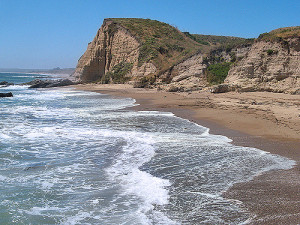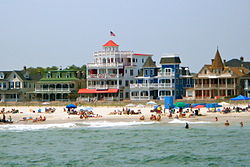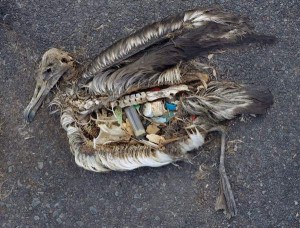 This weekend a good friend and I spent the day together at the coast. As we walked along the marshy trail to the beach, the air was warm and breezy, the sky shifting from silver-cast to blue and back again, the earth dark and pleasingly mucky, and the herbs and grasses and native flowers all different shades of springtime green. We each held our own intention for the day, which would end with a story from Martin Shaw, a funny, sharply brilliant, and deeply earthy storyteller from Devon. Deeply earthy in the sense that he has the ability to shift the ground underneath your feet with his telling.
This weekend a good friend and I spent the day together at the coast. As we walked along the marshy trail to the beach, the air was warm and breezy, the sky shifting from silver-cast to blue and back again, the earth dark and pleasingly mucky, and the herbs and grasses and native flowers all different shades of springtime green. We each held our own intention for the day, which would end with a story from Martin Shaw, a funny, sharply brilliant, and deeply earthy storyteller from Devon. Deeply earthy in the sense that he has the ability to shift the ground underneath your feet with his telling.
But that was later. Now, as we crested the dunes and the ocean came into sight, an unsummoned part of my mind said clearly: “Hello, mother.” There she was – the roiling, glowing, ceaselessly generative sea. My heart floated in her presence. It did not take long, though, as we walked barefoot on the sand, for us to notice the trash. The curving tideline was littered with tiny fly-filled dead crabs, scraps and mounds of clear, glistening, wobbly jellyfish, and an impossible amount of trash. Faded Kit-Kat wrappers, flopping chip bags, scrappy styrofoam, even a black garden pot and a decomposing red rubber ball. But mostly, small scraps and pieces of clear plastic bags, almost exactly the same size as the jellyfish we leaned down to examine.
 I grew up outside of Philadelphia, and went every summer to the beach at Cape May, where my grandparents lived in an apartment building for retirees. When I was I growing up, there were rumors of syringes and infection lurking in the ocean water, and there was an undercurrent of anxiety almost every time we dove in. But we did it anyway. We dove into those salty, deep green waves and floated joyfully. The Atlantic seemed big enough, pure enough, to absorb everything. Behind us, endless stretches of human habitation. In front of us, ancient, empty, nurturing sea. That was my ocean story.
I grew up outside of Philadelphia, and went every summer to the beach at Cape May, where my grandparents lived in an apartment building for retirees. When I was I growing up, there were rumors of syringes and infection lurking in the ocean water, and there was an undercurrent of anxiety almost every time we dove in. But we did it anyway. We dove into those salty, deep green waves and floated joyfully. The Atlantic seemed big enough, pure enough, to absorb everything. Behind us, endless stretches of human habitation. In front of us, ancient, empty, nurturing sea. That was my ocean story.
When I moved to northern California and first spent time on Pacific Ocean beaches, I found it amazing that you could not waltz into the water without a wetsuit, and I also shivered viscerally at the mounds of decaying seaweed piled on the beach, and their hosts of scavenging flies. Strangely, I had come to feel more at home with (or more oblivious to) human coastal waste, and all the engineering – both physical and emotional – the presence of that waste required, than with natural cycles of decay.
This weekend, my friend and I were a little dumbstruck, a little at a loss, not knowing how to meet, with either our hearts or our minds, the plastic decay that stretched before us across the wild coast. It was so clear how fish and others sea creatures could confuse a 2-inch square of plastic wrap with a luscious little jellyfish, how that plastic would sit heavy in the creatures’ bellies, taking up precious room. It also became clear that I have been holding a very comfortable, but very mythological, assumption that California beaches have no human waste, that decay in this western land is wild, natural, and not caused by me or people like me. That the Pacific, like the Atlantic, is big enough, pure enough, to absorb everything. How could I have missed that I live inside the same story, here or there?
It was also quickly clear that spending the day picking up trash had not been our intention. We started with a small, narrow newspaper bag, wet and drippy with sand, and filled that about half-full before telling each other that we could not do it all, we needed a break, we could put it down and pick it up on the way back, let’s just feel the wind and the sand and the clean air. Then, on the way back, I found a large plastic shopping bag, also wet and drippy with sand, and it felt clear — picking up trash would be our work-prayer, a way of doing something ridiculous for the sake of the turtles and birds. In went the Kit-Kat wrappers, the chip bags, the bubble wrap, the slick clear scraps of plastic, the red rubber ball. Eventually the bag was so heavy we each held a handle, switching sides occasionally. We lugged that bag, barefoot, all the way back to the bear-proof trash bins by the car.
In a dusky church on the edges of Pt. Reyes Station that night, Martin Shaw told a tale-thirsty crowd the story of Tatterhood, a wild twin sister, who at the end of the tale is finally seen in all her true power and beauty. And yet, and yet…when she is in the mood, or when you look from a different angle, you can still see her tattered hood, her scrappy goat, her coat of nit-filled fur.

Photo © Chris Jordan, from his photo series Midway: A Message from the Gyre.
Later, sitting up in bed, I cracked open Shaw’s new book, Snowy Tower, and began to read. He is not interested, he says, in spinning “stories of harmonious and stress-free relatedness to the living world.” That would be “like trying to outrun your own shadow.” He is interested in stories that “keep revealing to us deep inner material, material that comes with the labor of being human – a human with a history of betrayal, urbanity, and a tricky lower intestine, and not always the pristine mind of the elk or starling.” “Wild intelligence,” he writes, “reminds us of the village we come from as well as the forest we long for,” and deep stories of human initiation pertain to the “messy business of dwelling in the crossroads of both.”
Here is my new ocean story, that I will cast into the living world. Sometimes when you look at the ocean, she is raw, putrid, and wild. Other times, she is a splendid, undulous queen, cloaked with wind, crowned by rock and silver-blue shine. Over and over, I feel the clean, sharp wind over sandstone and lupine. I see the flies copulating in the rotting shells. And I see the plastic waste caught in her slithery green seaweed hair, in the grasping stomach of her feather-winged child. She is a crossroads. She is littered with the detritus of our human story – invincibility, infinity, empire. And she is still wild.



Oh, Amy Robinson……you describe your ocean visit with acute observation and a language to gather us into your thought….disturbing for sure……I, too, have a deep concern and sadness for the wastefulness of the world’s inhabitants. Your experience of meeting the Pacific for the first time, was mine, as well. Every three or four years I return to the east coast of US…..for my Florida beach fix….the warm silky water……the sadness of pollution ……the over building and the loss of a paradise I first knew in the sixties……Our hope needs to never leave us. Venus greeted me this morning. The universe above and surrounding us can be our solace….our distraction…..and our passion to help save the Earth….if only in small ways. It is like the heavy shopping bag you and your friend lugged on the beach…….a symbol of conscience……saying I am sorry to the planet……to the ocean. Now I go out to meet the morning sun as it rises over the Taylor Mountain ridge……..NIna
Nina, thank you so much for your kind words. I love the phrase, “a language to gather us into your thoughts.” I had never thought of personal writing in quite that way, and it’s beautiful. And thank you for greeting the sun!
The part that sticks to me is coming to ocean, the beautiful ocean, and noticing the trash, small and tiny, but everywhere. Then, unexpectedly for me, you and friend start picking it up. What a great move, I was stuck in sadness about how we humans destroy and toxify our environment, but you and your friend respond so freely, just like the flies in the rotting shells. Life has to go on. What a great teaching.
Thanks